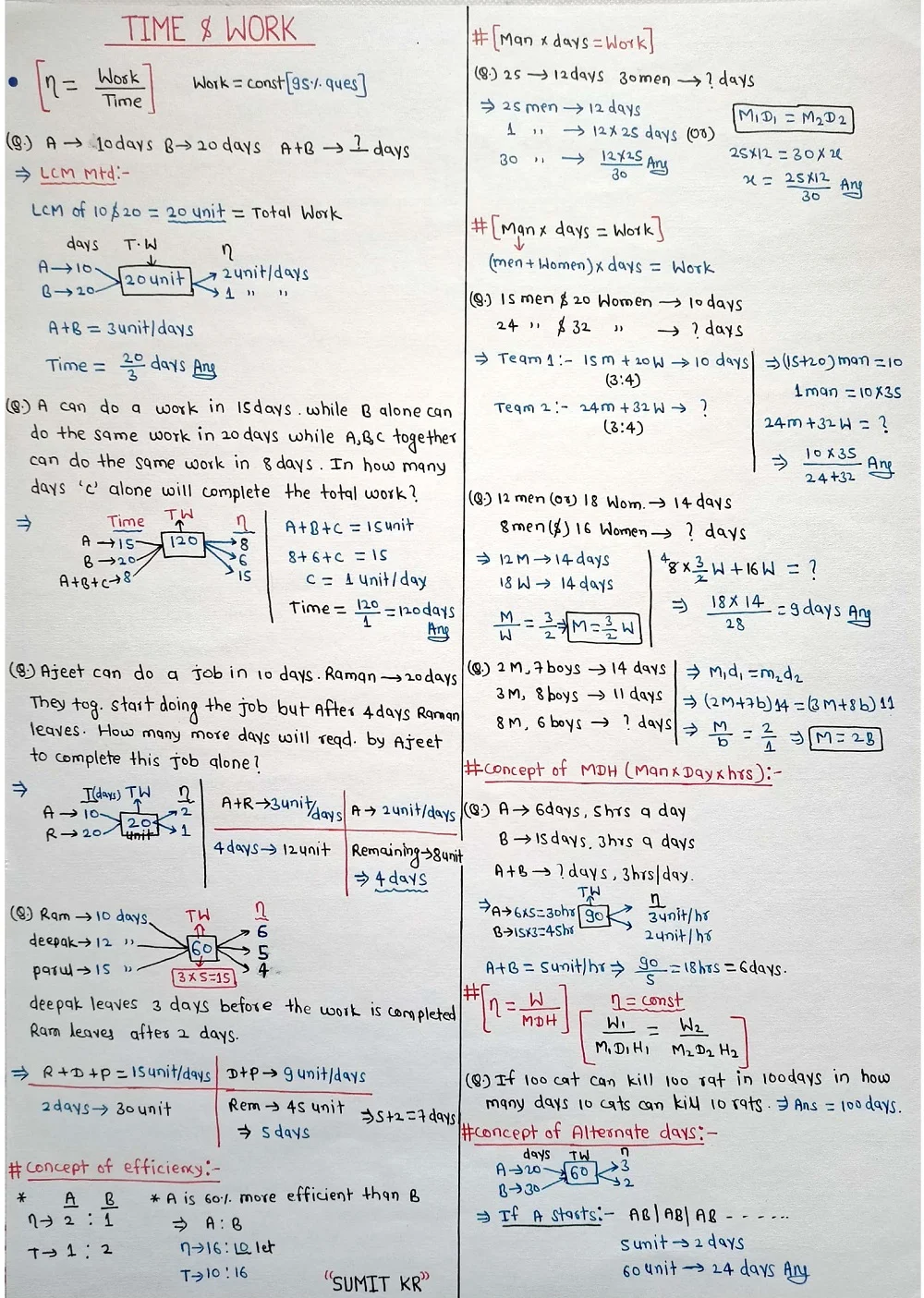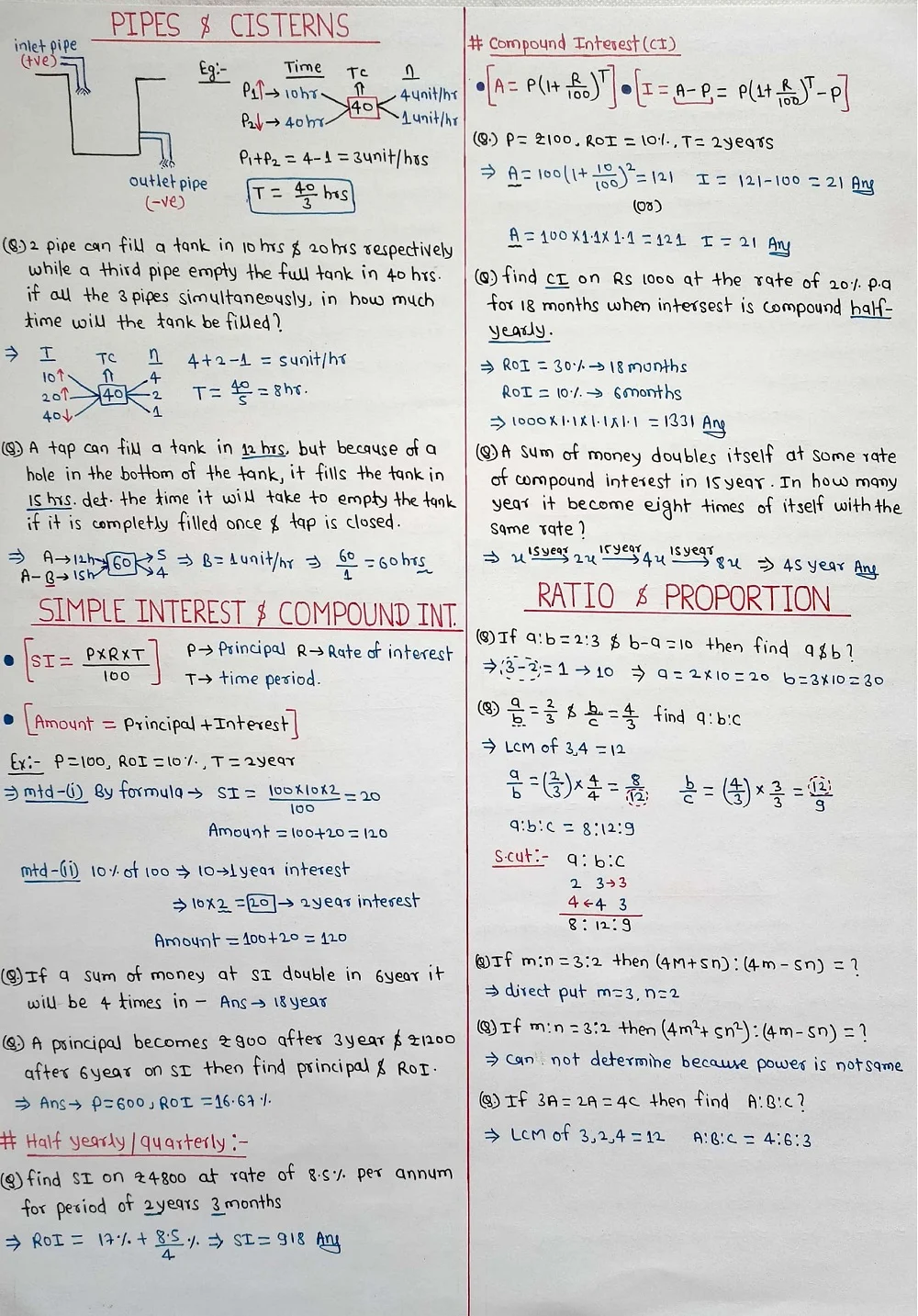Aptitude and reasoning are fundamental skills that play a crucial role in various aspects of life, from academic achievement to professional success. They assess an individual's natural talent and ability to analyze information, solve problems, and make sound judgments. This short guide provides an overview of these critical concepts, along with key aspects to remember.
Aptitude
Definition: Aptitude refers to a person's inherent capacity or talent to learn or acquire a specific skill. It's a natural inclination towards a particular field or activity.
Examples:
Verbal Aptitude: The ability to understand and manipulate language effectively. (e.g., fluency in reading, writing, and communication)
Numerical Aptitude: The ability to work with numbers efficiently and solve mathematical problems. (e.g., proficiency in calculations, data analysis)
Logical Aptitude: The ability to identify patterns, analyze information logically, and draw sound conclusions. (e.g., critical thinking, problem-solving skills)
Spatial Aptitude: The ability to perceive and manipulate spatial relationships. (e.g., visualization skills, understanding 3D objects)
Reasoning
Definition: Reasoning refers to the cognitive process of analyzing information, identifying relationships, and forming logical conclusions. It's the ability to use your knowledge and understanding to arrive at a solution.
Examples:
Inductive Reasoning: Drawing general conclusions based on specific observations. (e.g., "I see several swans that are white, therefore, all swans must be white.")
Deductive Reasoning: Applying general rules to specific situations to reach a conclusion. (e.g., "All men are mortal. Socrates is a man. Therefore, Socrates is mortal.")
Analytical Reasoning: Breaking down complex information into smaller parts to understand the underlying relationships. (e.g., analyzing data to identify trends)
By honing your aptitude and reasoning skills, you can significantly enhance your ability to learn new things, think critically, and make informed decisions. These skills are valuable assets in various academic and professional settings, making them essential stepping stones for success.
Aptitude and Reasoning: FAQs
Aptitude
Q: Are aptitude tests a good way to determine my career path?
A: Aptitude tests can be a helpful tool for self-discovery, but they shouldn't be the sole factor in choosing a career. Consider your interests, values, and experiences alongside your aptitude test results.
Q: Can I improve my aptitude in a particular area?
A: While some aspects of aptitude are innate, you can definitely enhance your skills through practice. Exercises, puzzles, and courses designed to target specific aptitudes can be beneficial.
Reasoning
Q: What's the difference between inductive and deductive reasoning?
A: Inductive reasoning moves from specific observations to general conclusions, while deductive reasoning applies general rules to reach specific conclusions.
Q: How can I improve my reasoning skills?
A: Engage in activities that challenge your thinking, such as solving puzzles, playing logic games, or debating current events. Regularly analyzing information and forming your own conclusions can also strengthen your reasoning abilities.
General
Q: Are aptitude and reasoning the same thing?
A: Aptitude refers to your natural talent for a specific skill, while reasoning is the process of using information and logic to solve problems. They are interrelated – your aptitude in a particular area can influence your reasoning skills within that domain.
Q: How can I develop both aptitude and reasoning skills?
A: There are many ways! Take courses or engage in activities that challenge you intellectually. Regularly practice problem-solving, critical thinking, and analyzing information from different perspectives.








